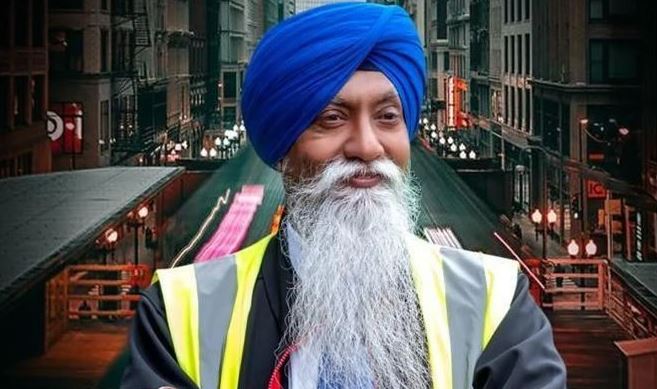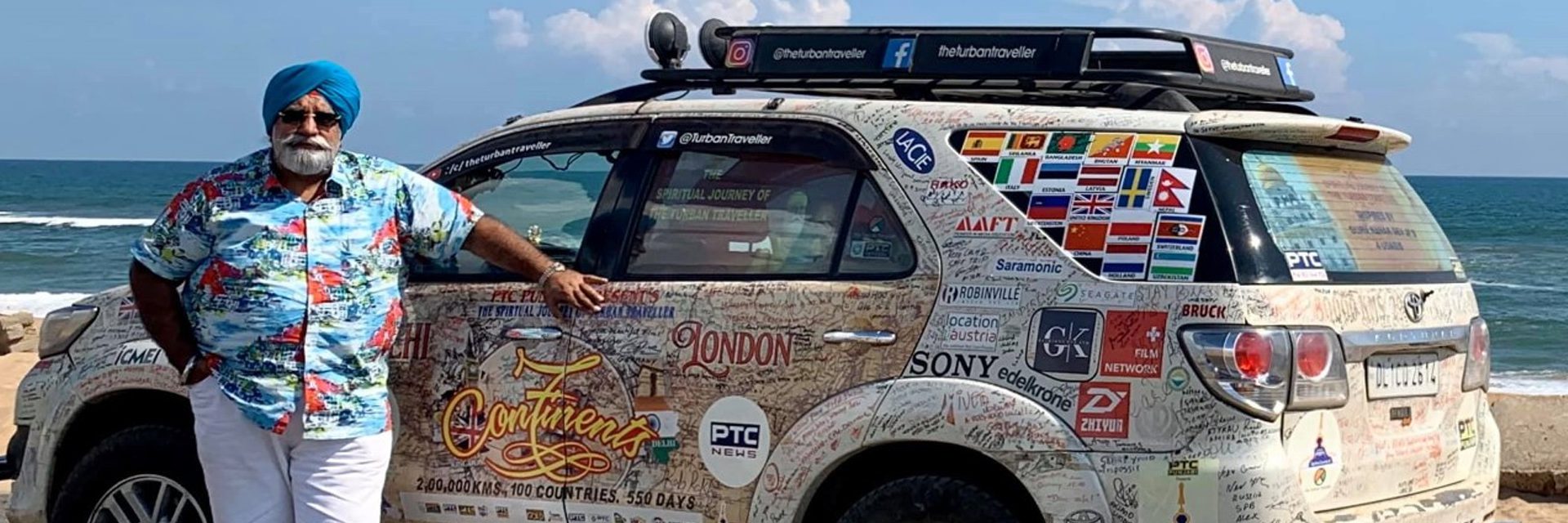(February 20, 2023) “Proud to be a bus driver’s daughter.️ His hard work made sure I had every opportunity in the world. Thank you, Dad!” commented Pam Kaur, Ranjit Singh Veer’s daughter as soon as his music video released on YouTube. The family didn’t know at that time that it would go viral. “It was when my friends started messaging, ‘we saw your father on TV and TikTok’, that we realised, whoa! he has gone popular,” remarked his son Jag.
UK-based Ranjit Singh Veer loves two things dearly – driving buses and singing. He combined both his profession and passion to come up with a music video. Still, he never imagined in his wildest dreams that he would turn into a singing sensation, attracting a fan following from around the world and media coverages from the likes of the BBC.
When he set out to create the video, Singh had intended to show his relatives back in India how he spends time with his colleagues while working for the National Express in the United Kingdom. The song, that he penned and sang, celebrates the diversity of his colleagues, his passion for his job, and the significance of health and safety.

Ranjeet Singh Veer
Singh had hired a video production company to create the sleek music video, featuring him and his colleagues. Before this viral video, his love for singing had led him to create another video two years back titled Corona Journey, which had garnered a lukewarm response. This time his creation managed to touch the chords harder.
Singh who is more comfortable in speaking in Punjabi said in an interview with BBC, “It was my dream to make a music video about my job so that when I retire, I can watch it back as a memento and reflect on how me and my colleagues used to drive buses together.”
The feel-good factor
The video reflects a sense of team spirit and the response has been overwhelming.
I wanted to celebrate the different communities we have at our depot and how we work together as one team. A music video was the best way to do that.
Sung in Punjabi, the music video has been praised for being entertaining while promoting the goodwill, peace and togetherness between people of different creeds and cultures who work together.
Singh has been working for the National Express in the UK for 13 years. The video was filmed at one of the company’s garages and West Bromwich bus station.
“Our staff really are our greatest assets,” said David Bradford, managing director for National Express West Midlands. “They all work incredibly hard to keep our customers moving, and to see the enthusiasm that they have for their roles in the company is great. Thank you to Ranjit and the team at West Bromwich for putting such a smile on everyone’s faces,” he added.
From Malaysia to UK
Before moving to the United Kingdom, the Global Indian worked as a priest at Gurudwara Sahib Butterworth in Malaysia. One of the people who knew him during those days commented on the video reminiscing how he has always been a good singer.
“He was known to perform some of the most beautiful and heart touching kirtans, lots of tears especially during weddings when he sang about daughter leaving her parents. I am tearing up now even 30 years later writing about this. I am so proud of you,” he commented on the video.

Ranjit Singh Veer with his colleagues
Breaking the language barrier
As the music video topped the charts, people around the world showered their love and appreciation on Singh and the Sikh community. The message conveyed is clear, even though many of his audience don’t understand a single word.
“I’m a young English lad living in London. The Sikhs are some of the hardest working people I’ve ever seen! I want to thank all those who work in the public transport sector regardless of their religion. Your hard work is what allows us to travel safely to work and to see family. Thank you for your efforts and for this beautiful music video!” remarked an overwhelmed British fan.
Overjoyed with his sudden stardom he could not contain his joy. “I am so happy and proud that so many people liked and gave such lovely comments,” the singing sensation told BBC News. “If you put your heart into your work, you will achieve great happiness. I like driving. There is a lot of joy in this job,” he added.
- Watch Ranjit Singh Veer’s songs on YouTube




